Global leading scholars get together for pathways towards common prosperity
What are the pathways towards common prosperity? Co-hosted by the China Academy for Rural Development (CARD) and the School of Public Affairs (SPA) at Zhejiang University, the Workshop on “Integrated Urban-rural Development and Common Prosperity” took place in hybrid format on Sept. 24, bringing together 10 leading scholars from home and abroad to share their insights on this issue. As part of Z4G, ZJU’s sustainability action plan, the Workshop aimed to provide theoretical support for promoting integrated urban-rural development and realizing common prosperity.
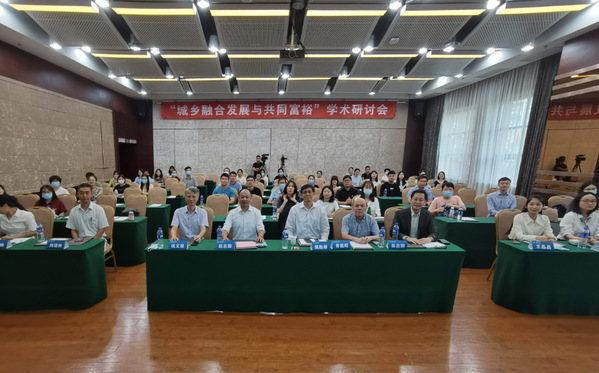
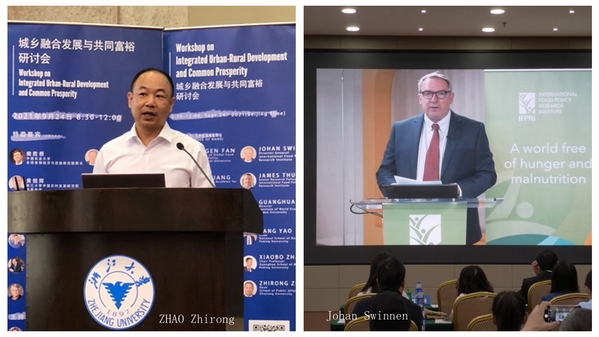
In opening remarks, Prof. ZHAO Zhirong, dean of SPA, deemed the Workshop timely and significant. While Zhejiang province is underway probing paths as a trailblazer towards common prosperity, Zhejiang University is responding to the SDGs with serial action plans and SPA and CARD are actively engaged as leading think-tanks to incubate systematic knowledge, Prof. Zhao said. Recognizing China’s great efforts to balance regional development and protect natural resources, Prof. Johan Swinnen, director general of the International Food Policy Research Institute (IFPRI), stressed that “successful and inclusive development of broad rural areas will shape the future of the world”.
The following keynote speeches, moderated by Prof. Kevin Chen,international dean of CARD, assembled six leading scholars.
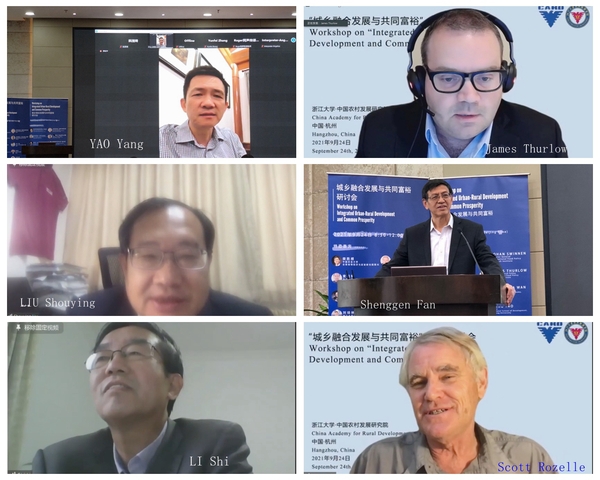
Sharing the example of China’s urban-rural disparities in schooling and educational mobility, Prof. YAO Yang, dean of the National School of Development of Peking University, noted in his speech that empowering rural residents with equal access to quality education is crucial for realizing common prosperity.
Prof. James Thurlow, senior research fellow from IFPRI, stressed the necessity to focus on rural development even in the period of COVID-19, especially financing the vulnerable agri-food sector and the safety net for shaping the agri-food system.
Linking the reduction of urban-rural income gap to farmers’ access to the urban rights, Prof. LIU Shouying, dean of the School of Economics of Renmin University of China, pointed out that the legislation of rural residents’ access to urban rights is the linchpin for the common prosperity.
“Rapid urbanization brings more challenges to the rural areas,” said Prof. Shenggen Fan, prescribing three pathways for strengthening rural-urban linkages. First is to adopt the Rurbanomics approach and leveraging linkages of towns and intermediate cities. Second is to improve policy coordination and targeting of public investment. Third is to support efficient and inclusive rural-urban value chains and mitigate risks.
Stating that it is key to focus on the rural low-income for achieving common prosperity, Prof. LI Shi, dean of the Institute for Common Prosperity and Development of Zhejiang University, avowed integrated urban-rural development as the fundamental path.
Prof. Scott Rozelle, a professor from the Freeman Spogli Institute for International Studies of Stanford University, shared his viewpoints that the lack of human capital is one of China’s biggest challenges. “It could be addressed by intervening rural caretakers through education and training accordingly,” he said.
Following the keynote speeches was a roundtable, moderated by Prof. QIAN Wenrong, dean of CARD and joined by renowned scholars from Peking University, Fudan University as well as Zhejiang University.
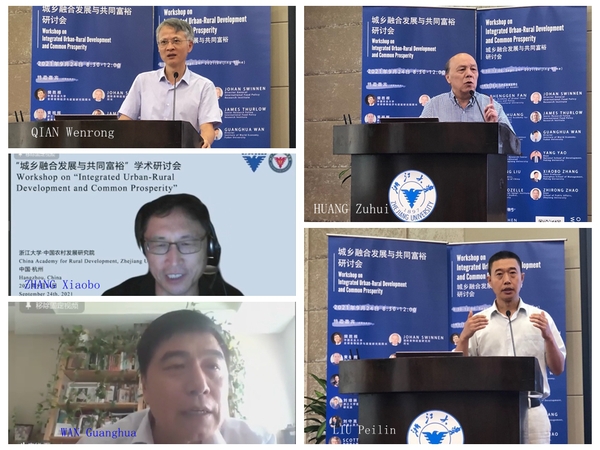
Prof. HUANG Zuhui, chief expert of CARD, emphasized that “farmers and rural development are the keys to China’s common prosperity”. Prof. ZHANG Xiaobo, the Chair Professor of Guanghua School of Management of Peking University, focused on the formation and transfer of rural industrial clusters. Prof. WAN Guanghua, director of the Institute of World Economy of Fudan University, reflected on the discourse of common prosperity. Prof. LIU Peilin, research fellow of the Research Center for Reginal Coordinated Development at Zhejiang University, proposed a new development model of “inter-village integration” with Zhejiang province as a case in point.
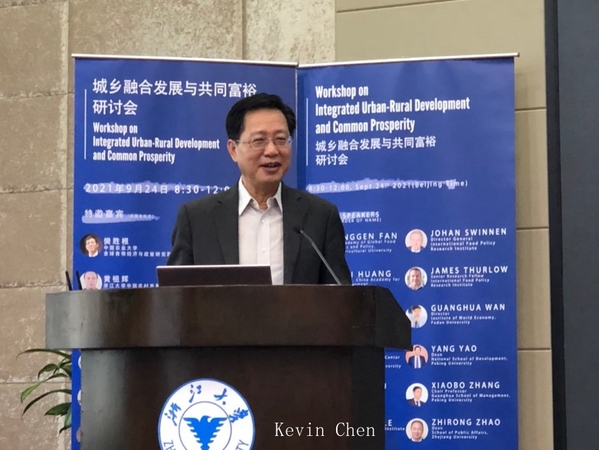
Prof. Kevin Chen concluded the Workshop, which convened in-depth discussions on the balance of equality and efficiency, as well as on the soft spots of common prosperity such as rural education and income distribution. He believed that the knowledge products of this Workshop will significantly contribute to common prosperity.
The Workshop was jointly organized by Zhejiang University-IFPRI Joint Center for International Development Studies and the Food Systems and Policy Lab of Zhejiang University with the support from the IFPRI and many other organizations at home and abroad. The event attracted around a hundred offline participants with approximately 6,000 livestream viewers around the globe.
Source: China Academy for Rural Development of Zhejiang University
School of Public Affairs, Zhejiang University